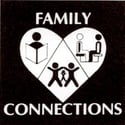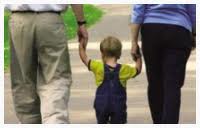What is the process of domestic adoption in the United States.

Understanding Domestic Adoption
The term domestic adoption is used to describe the process of adopting a child within the same country, in this case, the United States. It involves the placement of a child who is in need of a permanent home with adoptive parents who are willing and able to provide a loving and stable home.
There are various reasons why birth parents choose domestic adoption, including personal circumstances, financial stability, or the desire to give their child a better life. It is important to understand that domestic adoption can be a complex and emotional journey for both the birth parents and the adoptive parents.
During the process of domestic adoption, prospective adoptive parents work closely with adoption agencies or attorneys to navigate the legal requirements and find a suitable match for their family.
Requirements for Prospective Adoptive Parents
In order to adopt a child domestically, prospective adoptive parents must meet certain requirements set by the adoption agency and/or state laws. These requirements may vary depending on the agency and the specific circumstances of the adoption.
Some common requirements for prospective adoptive parents include undergoing a thorough background check, providing documentation of financial stability, completing a home study, and completing adoption training courses.
It is important for prospective adoptive parents to be prepared for the rigorous screening process and to demonstrate their ability to provide a safe and nurturing environment for a child.

Matching Process and Placement
The matching process in domestic adoption involves finding the right match between the child and the adoptive parents. Adoption agencies consider various factors such as the birth parents' preferences, the adoptive parents' preferences, the child's background and needs, and the compatibility between the two.
Once a match is identified, the adoptive parents and the birth parents may have the opportunity to communicate and get to know each other through open or semi-open adoption arrangements. This communication helps build trust and establish a relationship that can benefit the child in the long run.
Placement refers to the moment when the child is placed with the adoptive parents. It is a significant and emotional event for everyone involved. The adoptive parents may be responsible for the child's care from that point forward, although the legal procedures for finalization will still need to be completed.

Legal Procedures and Finalization
Once the child is placed with the adoptive parents, there are legal procedures that need to be followed to finalize the adoption. These procedures vary by state, but typically involve filing adoption petitions, attending court hearings, and obtaining a final decree of adoption.
The finalization of the adoption legally establishes the adoptive parents as the child's legal parents, with all the rights and responsibilities that come with it. This process provides security and stability for the child and ensures that the adoption is recognized by the law.
It is important for adoptive parents to work with an attorney who specializes in adoption law to navigate the legal procedures and ensure that all necessary steps are taken to complete the adoption process in their state of residence.
.jpg?width=345&height=194&name=Meeting%20with%20your%20adoption%20caseworker%20(Website).jpg)
Support and Resources for Adoptive Families
It is good for adoptive families to have support and resources throughout their adoption journey. There are various organizations, support groups, and online communities that provide guidance, information, and emotional support for adoptive parents.
These resources can help adoptive parents with the challenges and uncertainties that may arise during the adoption process and provide a network of individuals who understand and can relate to their experiences.
Additionally, adoptive families may also be eligible for financial assistance, such as adoption grants or subsidies, to help with the costs associated with domestic adoption.
It is important for adoptive parents to reach out and connect with these support systems to ensure that they have the necessary support and resources to provide the best possible environment for their adopted child.

Family Connections has been helping adoptive families and birth families since 1994. We would be happy to help you explore all your adoption options. We offer services to birth parents, domestic infant adoption placement, home study services, post placement and post adoption supervision reporting, international adoption placement services from Belize, Bulgaria, Honduras, Hungary, Jamaica and Pakistan. Call us at 607-756-6574 or Click on the link below to request a one on one, free, no obligation consultation with an adoption professional.





Let Us Know What You Thought about this Post.
Put your Comment Below.